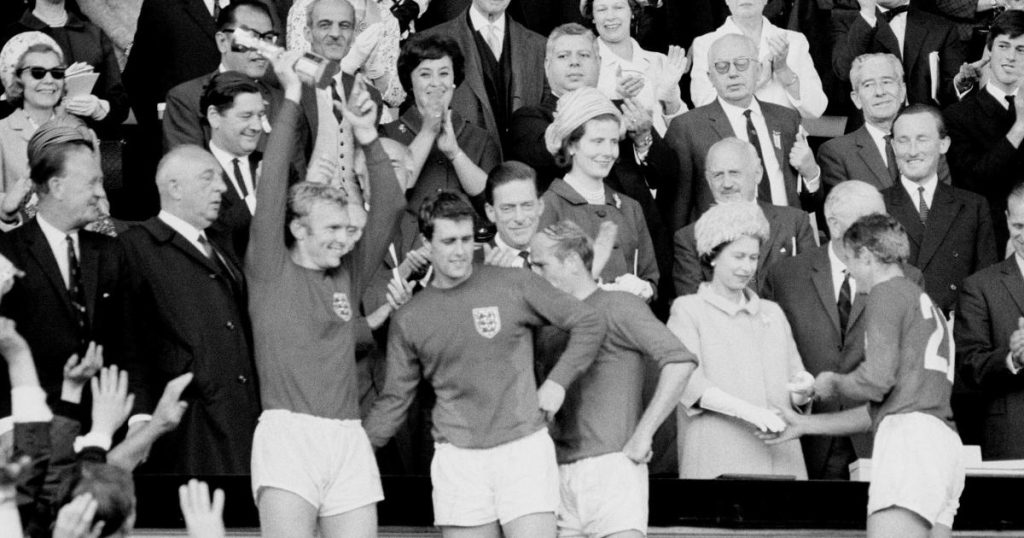The title of course draws attention to the fact that Hurst is the last of the players remaining alive from that momentous day 60 years ago, when England won the World Cup at Wembley.
That in itself is surprising. All would be in their 80s, if alive today. Hurst is 83. In these days of living longer, the law of averages would suggest more should remain alive. Many have drawn attention to the disproportionate number of the team who got dementia.
The book offers some fascinating insights, especially for West Ham fans. The prominence of Bobby Moore, Martin Peters and Geoff Hurst in the team. (West Ham fans like to claim they won the World Cup, with Hurst and Peters scoring all four goals).The revelations that Peters always carried a certain resentment over being left out of the West Ham FA cup-winning team of 1964.
Also, that he wanted the team to do better in the league. Peters joined Spurs in 1970.
Then, Moore being in dispute with West Ham as the World Cup finals began. It seems he probably played the final thinking he’d be a Spurs player afterwards.
Later, Hurst found out that Manchester United wanted to sign him in 1968. The response from West Ham manager Ron Greenwood to his Manchester United counterpart Matt Busby was a telegram reading “No, regards, Greenwood”.
Player power was very much less than today. Indeed, the treatment of the players in that team down the years has been pretty appalling, particularly from the FA. Instead, of being lauded, they and their wives were often snubbed.
One of the endearing themes of the book is that these were just a bunch of ordinary blokes, brought together to create a great football team. They got plenty of fame but little of the riches of players today.
Most, went into other trades, after football. Hurst sold insurance, as did Peters. Roger Hunt went into the family haulage business, whilst Ray Wilson became an undertaker. A number sold their medals to make ends meet.
Yet, the achievements of the team have lived on for 60 years. To a degree they represent a ghost that has haunted every England team put out since that famous day in July 1966.
The game has changed dramatically since that time, in some ways for the good, in others less so. But still England has not won the World Cup. A couple of semi-final appearances is all England has to show for 59 years of effort. This, though, maybe about to change, with the stars seemingly aligning. Next year marks the 60th anniversary of that win, England have the players to win, as proven in recent tournaments. To top it all, they have a manager, Tomas Tuchel, from the country, Germany, that England beat in 1966. So, yes all is set for England to once again win the World Cup in 2026. But in the meantime, Geoff Hurst’s book offers a great insight to those who did it the first time around in humbler but great days.
*Geoff Hurst – Lost Boy of 66
Published by Ebury Spotlight, £22



